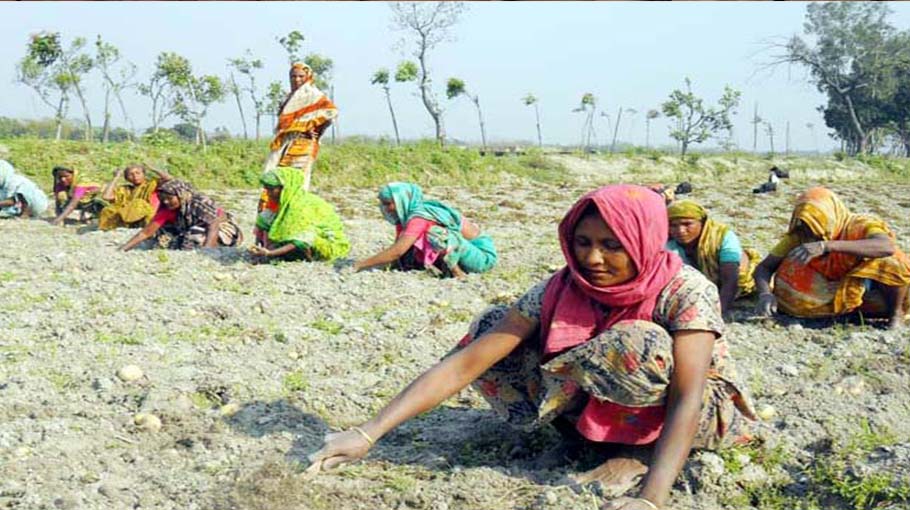Micro loan forcing rural women to sell labour

Like every year, 'International Rural Women's Day' was celebrated on Saturday. Most of the organizations wrapped in the urban center are vocal for the realization of women's rights, but the rural women are not able to tune in the protest. At the Fourth United Nations Women's Conference held in Beijing in 1995, the proposal to celebrate International Rural Women's Day on October 15 was adopted. Since 1997, the Women's World Summit Foundation, an international voluntary organization based in Geneva, has organized motivational programs in various countries around the world to celebrate the day. The day is being celebrated around the world to recognize the role of rural women in various fields including rural development, food security and poverty alleviation.
Although the day is celebrated every year in Bangladesh, the number of women workers is increasing at an alarming rate in Rangpur region of the country. The housewives of the middle class and lower class families of the village are also joining the group of women workers. Even though there is inequality in the payment of wages, they become laborers by giving up the illusion of having children and being forced to pay the installments of the loan.About 50,000 families live in Char area of Rangpur along with Teesta Dam. These once wealthy families have become destitute due to the erosion of the river and have settled down in the areas near the Teesta. Selling labor is their only means of livelihood. As there is no work in the area at different times of the year, family heads rush to Dhaka, Sylhet, Chittagong and other districts of the country in search of work. Still, due to various reasons including rising commodity prices, the families are trapped in the debt net of private companies. Women are forced to sell labor in the fields.
It can be seen on the ground that soil cutting, paddy cutting and early winter crop cultivation are going on everywhere, including the Teesta pastures. Moreover, women workers are engaged in these works. About 30 women workers were simultaneously working on land preparation for early potato cultivation in Ichli Char of Gangachara Upazila of Tista banks area. At that time, Shefali Begum, Zarina Begum, Jasho Mai, Felani Bewa said that they get a maximum of Tk 200 for their daily work from 8 am to 6 pm. Male workers are paid Tk 400 to 500 for the same amount of work.
Shankardah Charer Akalima, Churtan Necha, Sabjan Begum said that this is the first time in their family life that they are selling labor in the fields outside their homes. When asked why, they hide their faces and say that they have to pay the loan installments every week. On investigation, it is known that there are no families in Char area who have not taken small loans from non-governmental organizations (NGOs). Some have taken loans from multiple agencies. They have to deposit loan installments ranging from 250 taka to 1000 taka every week. Beauty Begum of Jairamojha Char said that she took a loan of 10,000 rupees from BRAC 6 months ago for her daughter's marriage. He said, "The family does not survive on the husband's earnings. Jobeda Khatun said, "My husband works in another district. I work to repay the installments.' She took a loan of 15 thousand Tk from the private organization to survive during the shortage.
UP member of the area, Dulal Miah said that currently the wages of a worker in the area is 400 taka. And if a woman is a worker, her wages are given a maximum of Tk 200. UP Chairman Abdullah Al Hadi said that the families of Char area are trapped in the debt net of various private companies. They have to pay the loan installments weekly throughout the year. Confirming the issue of inequality in wages, he said that the number of women workers is increasing day by day due to the urge to pay loan installments. And moneylenders are using that opportunity.




